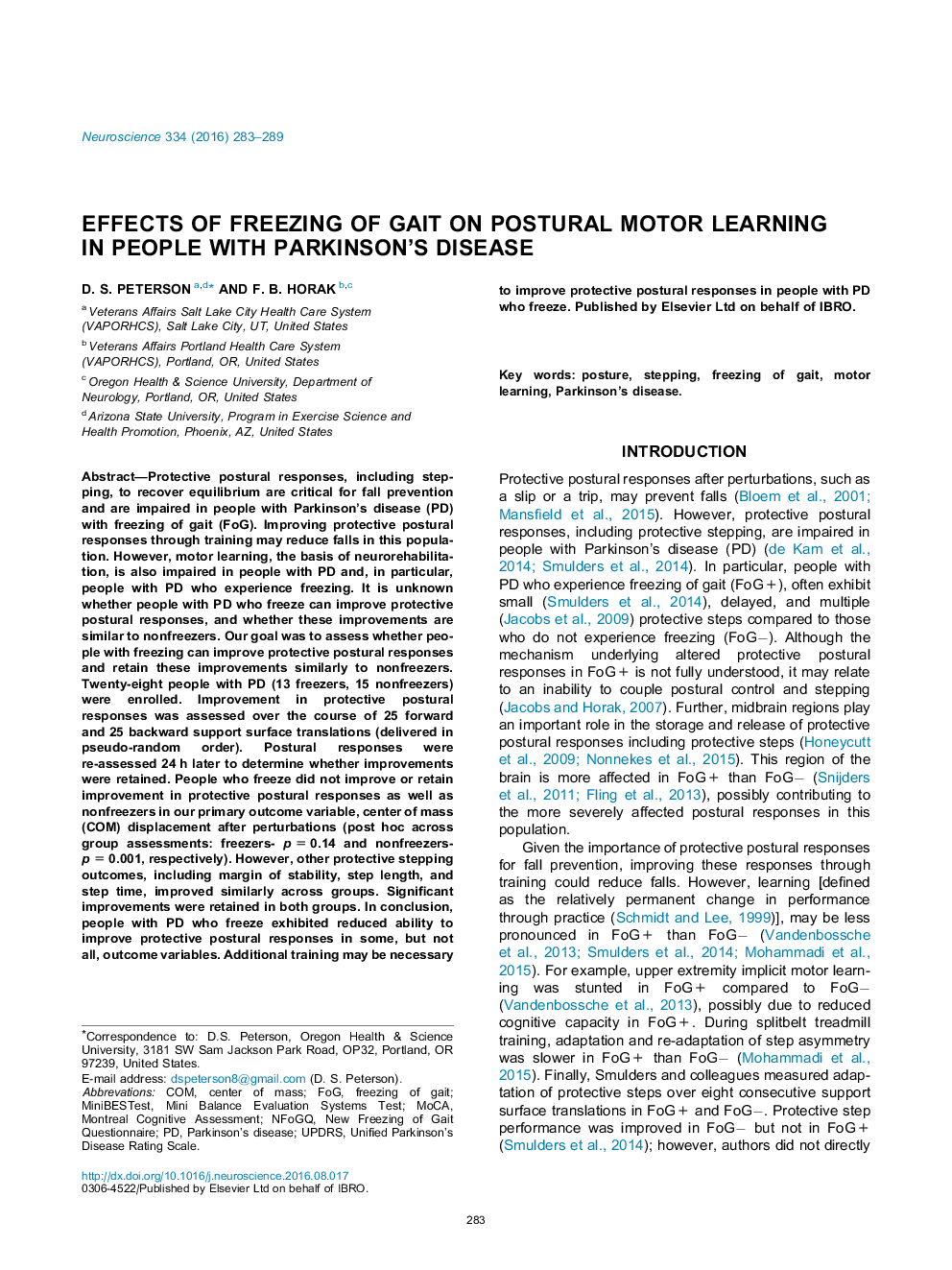| کد مقاله | کد نشریه | سال انتشار | مقاله انگلیسی | نسخه تمام متن |
|---|---|---|---|---|
| 6270767 | 1614742 | 2016 | 7 صفحه PDF | دانلود رایگان |

- We assessed postural motor learning in people with PD who do and do not freeze.
- PD who freeze exhibited less learning in postural responses than nonfreezers.
- However, people who freeze did improve performance on some postural variables.
Protective postural responses, including stepping, to recover equilibrium are critical for fall prevention and are impaired in people with Parkinson's disease (PD) with freezing of gait (FoG). Improving protective postural responses through training may reduce falls in this population. However, motor learning, the basis of neurorehabilitation, is also impaired in people with PD and, in particular, people with PD who experience freezing. It is unknown whether people with PD who freeze can improve protective postural responses, and whether these improvements are similar to nonfreezers. Our goal was to assess whether people with freezing can improve protective postural responses and retain these improvements similarly to nonfreezers. Twenty-eight people with PD (13 freezers, 15 nonfreezers) were enrolled. Improvement in protective postural responses was assessed over the course of 25 forward and 25 backward support surface translations (delivered in pseudo-random order). Postural responses were re-assessed 24 h later to determine whether improvements were retained. People who freeze did not improve or retain improvement in protective postural responses as well as nonfreezers in our primary outcome variable, center of mass (COM) displacement after perturbations (post hoc across group assessments: freezers- p = 0.14 and nonfreezers- p = 0.001, respectively). However, other protective stepping outcomes, including margin of stability, step length, and step time, improved similarly across groups. Significant improvements were retained in both groups. In conclusion, people with PD who freeze exhibited reduced ability to improve protective postural responses in some, but not all, outcome variables. Additional training may be necessary to improve protective postural responses in people with PD who freeze.
Journal: Neuroscience - Volume 334, 15 October 2016, Pages 283-289